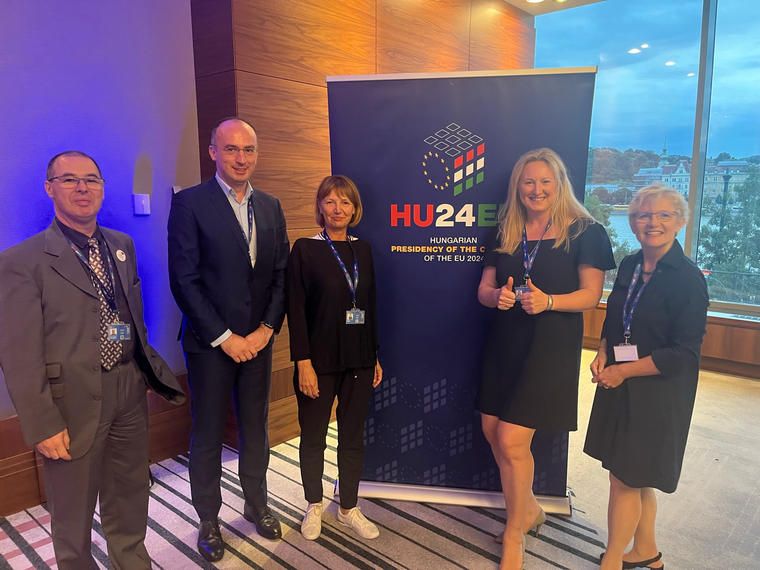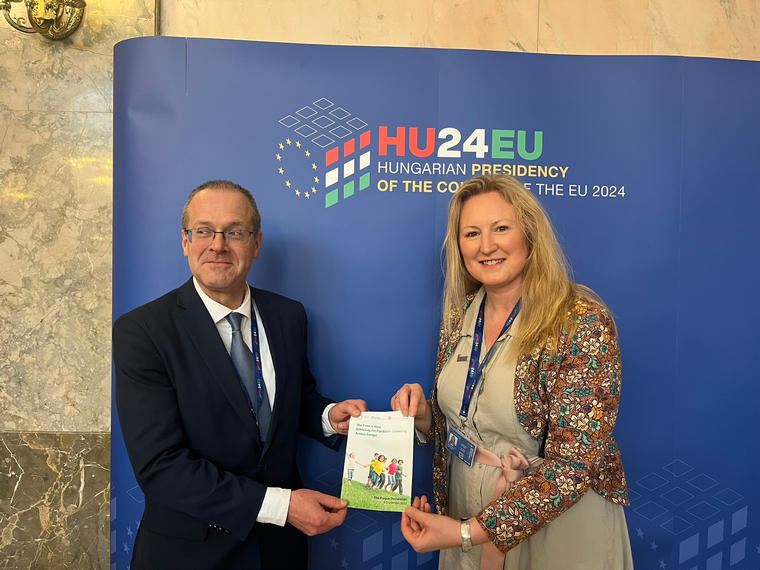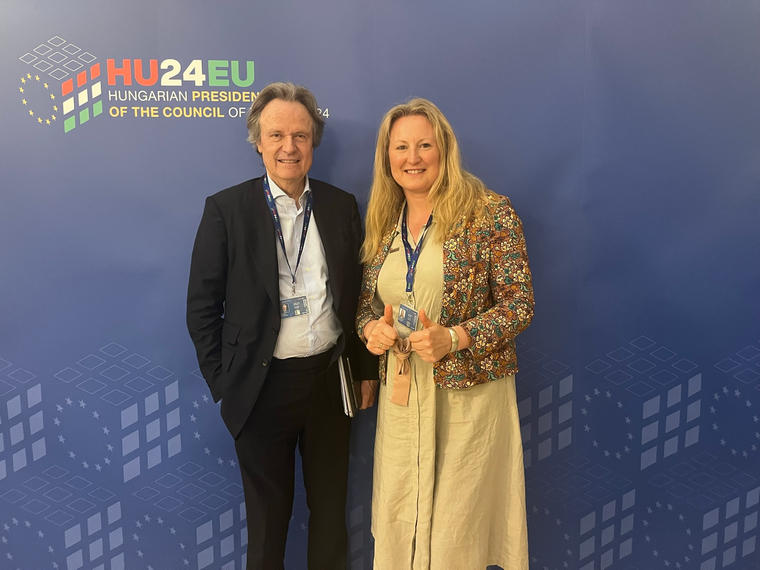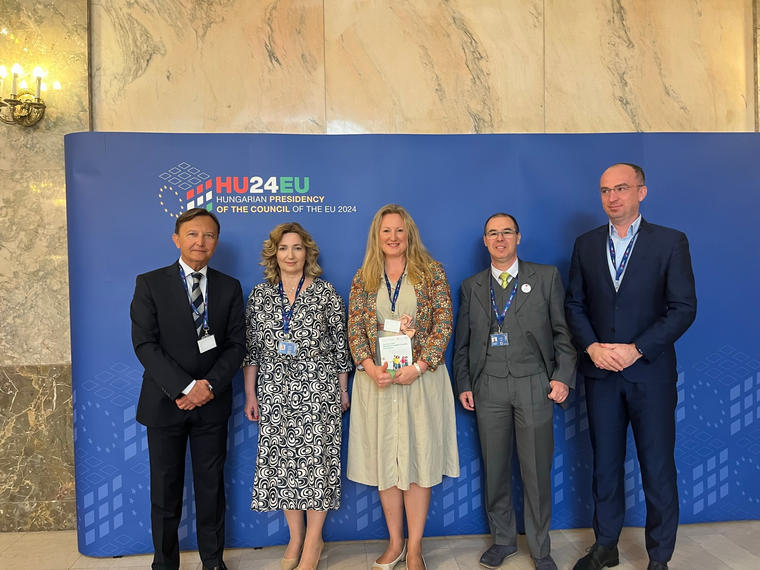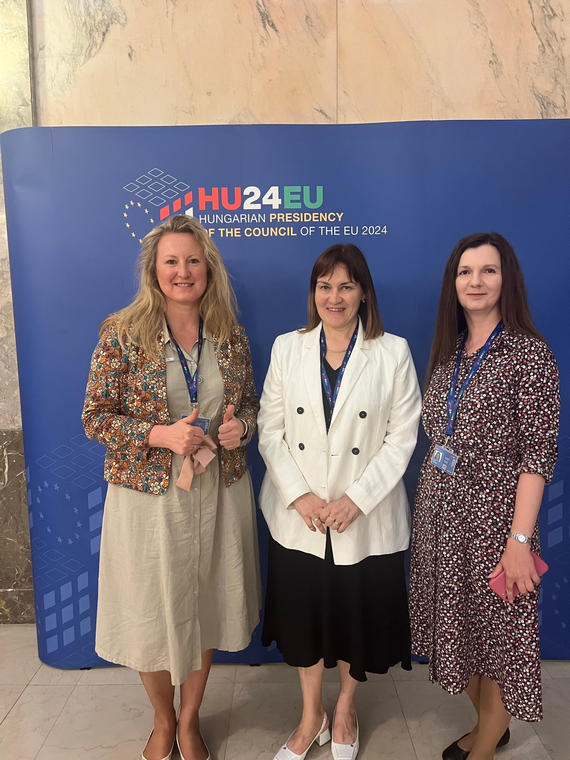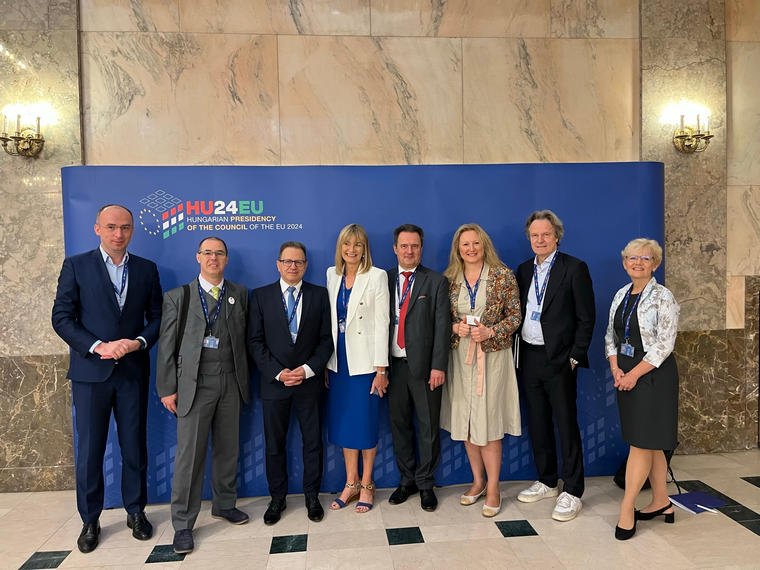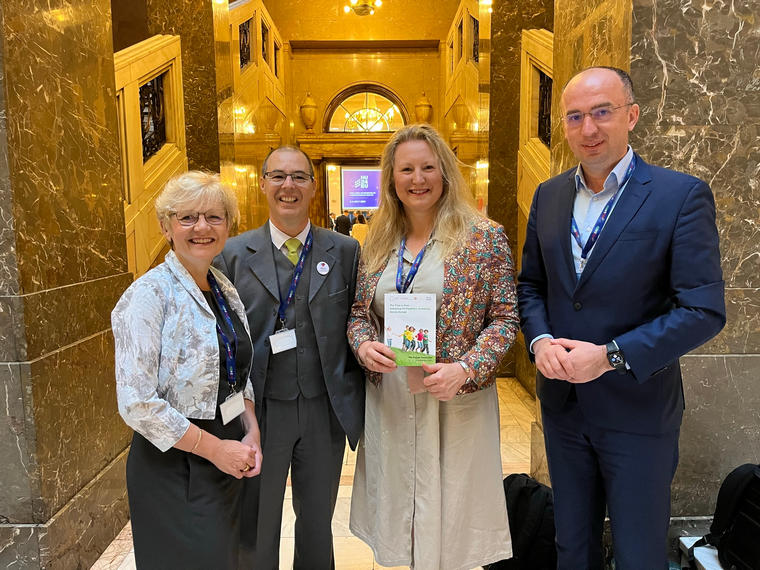
On July 4th, the Hungarian EU Presidency kicked off with a landmark event focused on cardiovascular health (CVH), held at the Ministry of Interior in Budapest. This high-level meeting, organised in collaboration with the European Society of Cardiology, emphasized the need for a dedicated European Action Plan on Cardiovascular Health, as advocated by the European Alliance for Cardiovascular Health (EACH). International key stakeholders, including health ministers, health experts, doctors and researchers, leading health organisations like WHO Europe as well as representatives of EACH partner organisations and patient representatives were present. Representing FH Europe Foundation were CEO Magdalena Daccord, Dr Marius Geanta, Chair of FHEF Policy and Innovation Committee, Nicola Bedlington, Senior Policy Advisor, and Dr Ákos Gábor Gesztes /FH Patient Ambassador from the Hungarian Patient Organization and member of the Network.
Dr. Péter Takács, Hungary's Minister of State for Health, opened the event, followed by insights from Prof. Dr. Franz Weidinger, President of the European Society for Cardiology, and Prof. Dr. Béla Merkely, Honorary President of the Hungarian Society of Cardiology. They highlighted the staggering impact of cardiovascular disease, which costs Europe 282 billion euros annually and is responsible for 40% of deaths in women. The event underscored the critical role of air pollution, a topic addressed at COP 28, and the need for more research—currently, only 4% of clinical trials focus on cardiovascular disease. Despite the commonality and cost of rehospitalization, 80% of premature cardiovascular episodes and strokes are preventable.
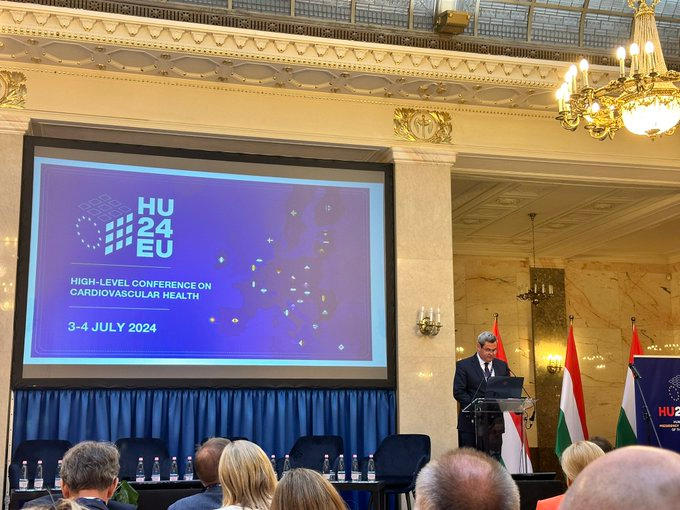
Watch this 15min Masterclass in compelling data presentation on cardiovascular diseases burden by Prof. Franz Weidinger. The President of ESC underlines the human cost of CVD, the economic burden, disparities (especially gender) and the need for innovation in research and investment in primary and secondary prevention strategies across Europe.
The meeting featured four expert panels discussing and a Ministerial roundtable. These panels framed cardiovascular health as a "path-finder" and emphasized the importance of trust and data-driven health systems.
A significant segment of the event was a ministerial roundtable with health ministers from Hungary, Ireland, Poland, Romania, and Spain, alongside Dr Hans Kluge, WHO Regional Director for Europe. The panellist had an opportunity to showcase some of the practises already implemented in their respective countries in the effort to tackle CVD. Yet, it was very clear that more should be happening to resolve the issue. The roundtable affirmed the value of a comprehensive European Action Plan on Cardiovascular Health, advocating for an integrated approach that transcends individual policies and emphasizes collaboration across non-communicable diseases and across different branches of the economy, learning from exciting examples like the cancer plan and showcasing synergies which will drive better, long lasting health outcomes.
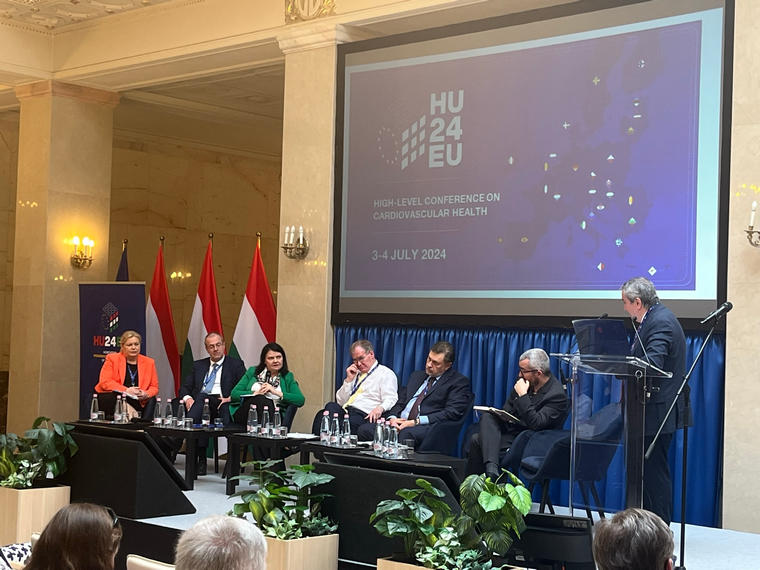
The event offered a unique opportunity to discuss with high-level stakeholders the needs and the progress and achievements made in the familial lipids’ advocacy space, which echoed in the sessions.
Although inherited CVD risk factors and genetics were not the focus of session 1, it was great to hear a personal account told in the final remarks by Prof. Dr Paul Dandale. Known for his dedication to prevention and interest in familial hypercholesterolaemia (FH), he shared his experience of some close relations affected with FH and his stance on the need for early screening and detection of genetic high cholesterol.
Specific reference to FH Paediatric Screening was made by Prof. Fausto Pinto, Past President of WHF, in session 2, when talking about secondary prevention and tangible examples of successful implementation in some Member States. In the discussion part of the session, Magdalena Daccord addressed the panellist and the audience highlighting the urgency to act and the importance to consider familial lipid disorders as CVD risk factors which affected us all. Considering the prevalence of elevated Lp(a) and FH, there were potentially 30 people in the plenary room affected with either of the conditions. She then asked about the opportunity to leverage already existing experiences and learnings from best practices implementation in countries like Slovenia, Croatia, Cyprus, as the MoH representatives of those nations were present in the room.
Several informal yet important exchanges dedicated to FH and elevated Lp(a) took place over the networking dinner reception on the evening prior to the conference and continued in the breaks on the day. The Hungarian conference, following the Slovenian technical meeting in 2021, and the Czech Senate meeting in 2022, marks the third EU Presidency high-level event and an important milestone in the mission to prevent the preventable.
The FH Europe Foundation delegation, equipped in Prague Declaration and with PERFECTO FH and the Lp(a) international Taskforce projects as examples, advocated tirelessly for childhood FH screening and was raising awareness of elevated Lp(a) as another independent CVD risk factor requiring urgent attention, actions and investment.
The discussions on the day, both on stage and in the corridors, reinforced the necessity for a standalone cardiovascular health plan, given its profound human and financial impacts. The event concluded with a commitment to make Europe a global leader in cardiovascular research, management, and care, with the emphasis on cardiovascular health. This ambitious vision requires political leadership, belief, and courage to implement a coherent and effective plan.
The Budapest historic event marks a significant stride towards a healthier future for Europe, underscoring the collective commitment to tackling cardiovascular disease through comprehensive and innovative strategies.
The European Cardiovascular Health Plan builds on the ambitions and vision of EACH and provides a strategic framework for Europe and an incentive for developing all-important national plans to tackle early CVD detection, CVD prevention, timely and appropriate treatment to prevent dire complications, increased investment in CVD research and rehabilitation.
The event in photos:
